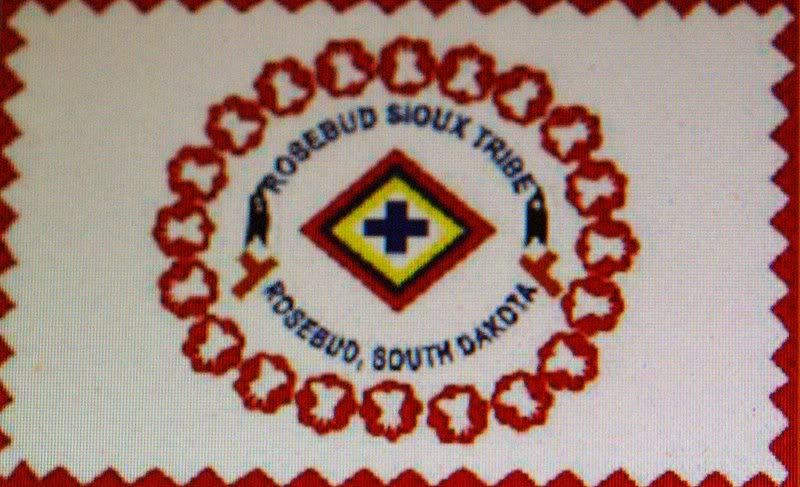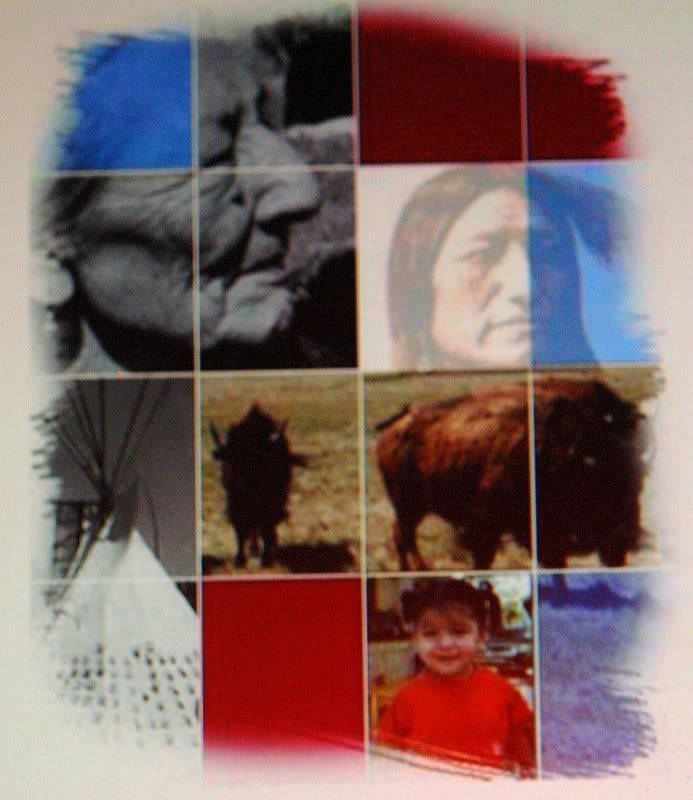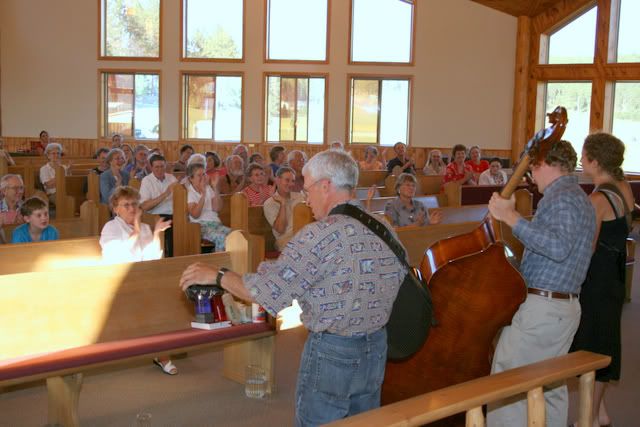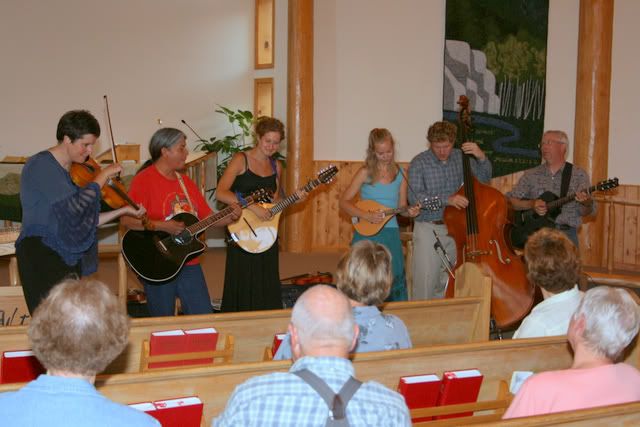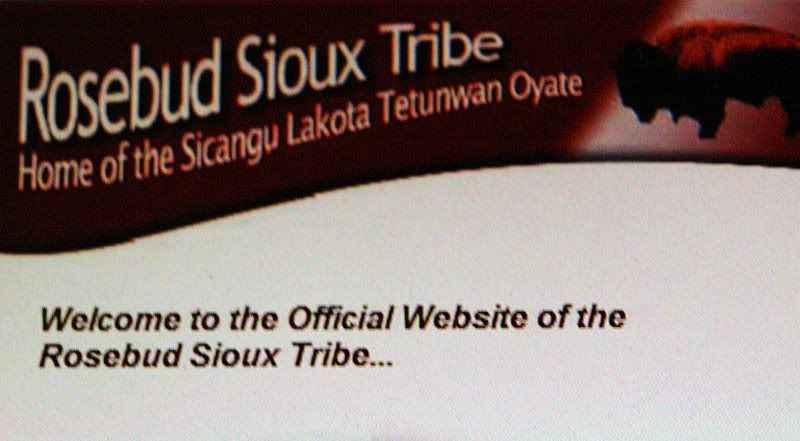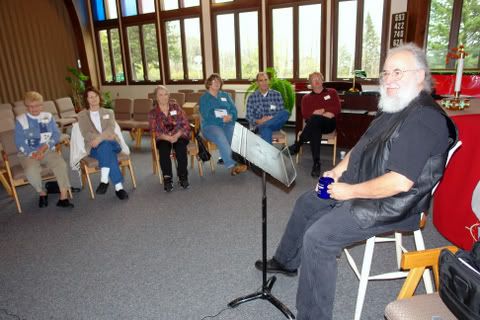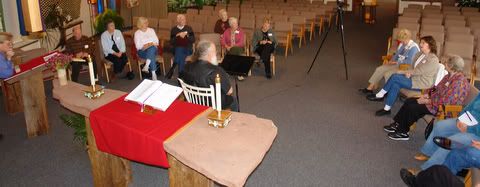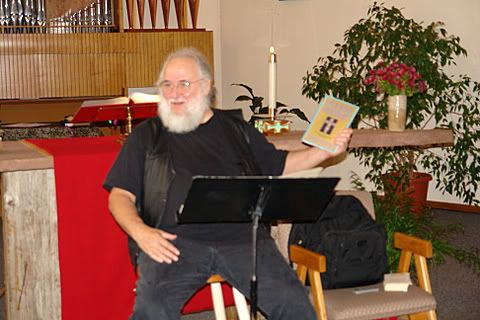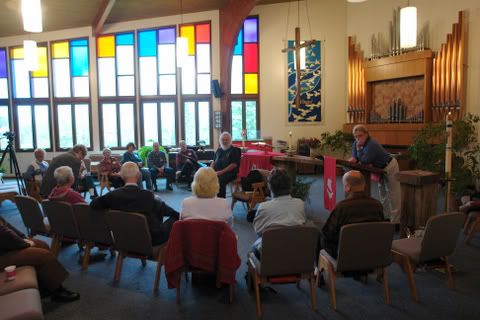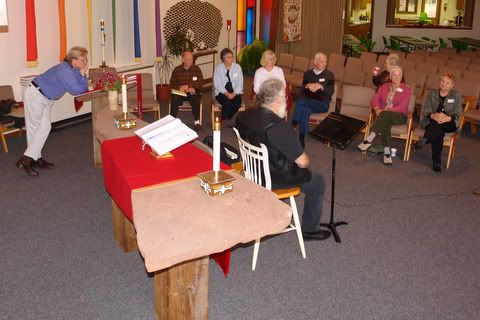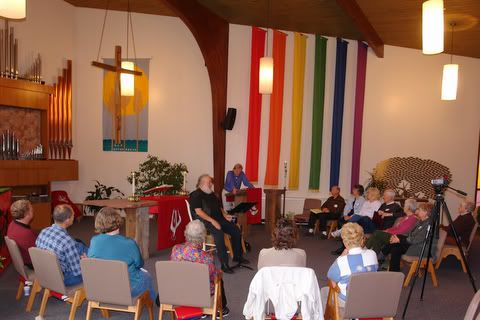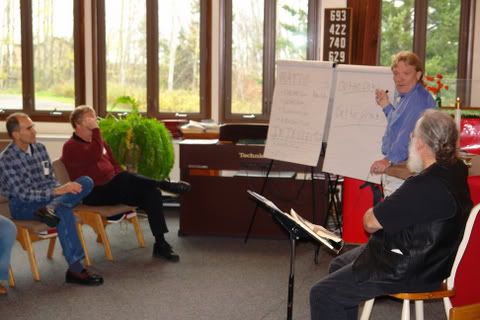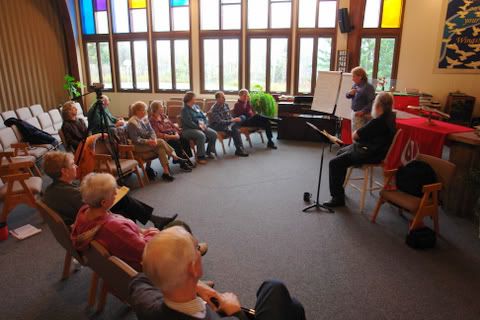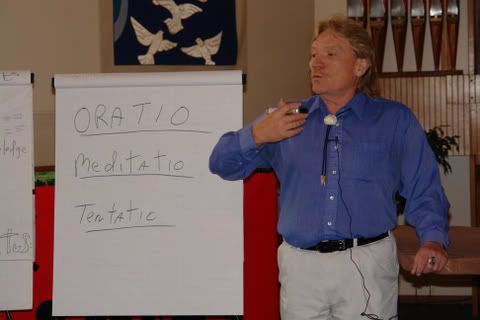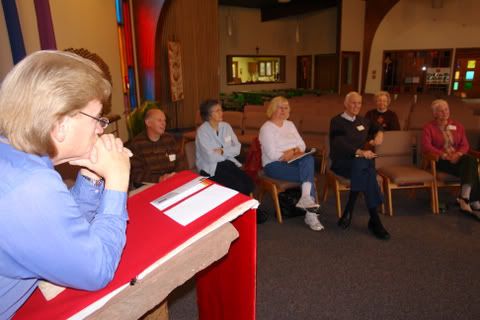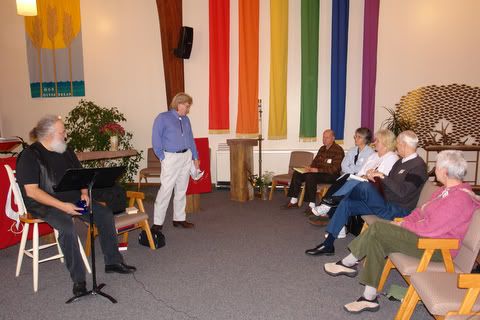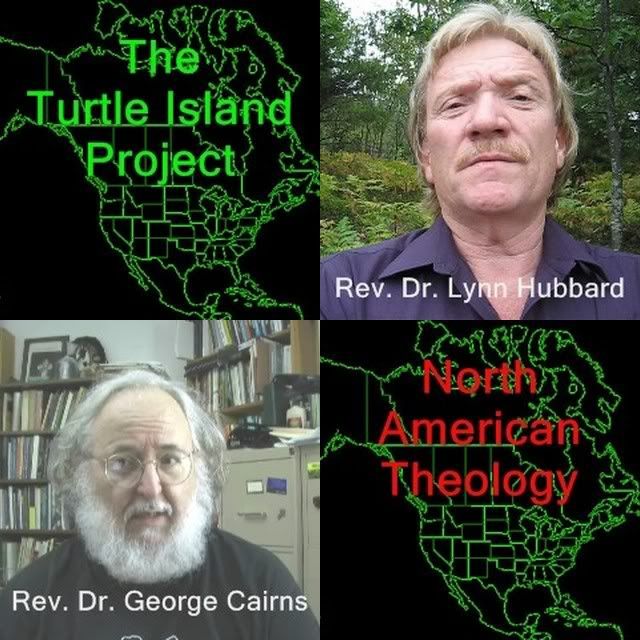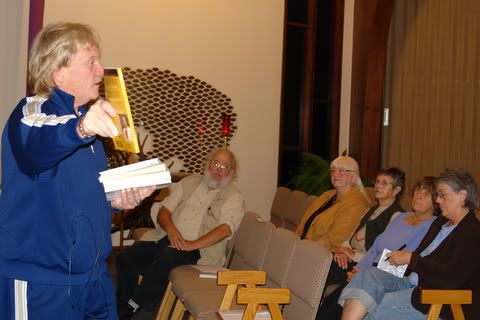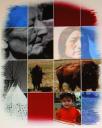Written in honor of the "Conference on Celtic Spirituality, Ecology, and Participative Consciousness" held on September 13, 2007 in Munising, MI
By Rev. Dr. Lynn Hubbard, director and co-founder of the Turtle Island Project in Michigan's Upper Peninusla
Religion and language share many characteristics, not the least of which, is that they are both cultural expressions of meaning.
They are formed and expressed within specific contexts or "places" of origin. Like languages, religions are particular expressions of shared meanings.
Like languages, religions can understand one another, because they share a common meaning.
That is, they attempt to replicate between individuals either a direct perception or some "sentient derivation" of the shared experience of what we call God, or the Great Spirit, Wakan Tonka, Kitche Manitou.
Like languages, religions can be classified by their places of origin.
We speak, for example, of Romance languages, and by that, we mean a family of languages that share a linguistic "stock," in other words, they share common origins, places, - a cultural milieu.
Religions sharing the same cultural milieu, also share a common religious "stock."
They share a similar religious vocabulary, religious grammar and syntax.
Like languages, religions also change and evolve, in accordance with both spatial and temporal dynamics. One way that spatial evolution can occur within a religion is when it leaves its "place" of origin.
Compare for example, Mediterranean Christianity to Northern European Christianity; compare American Christianity to African or Latin American Christianity; compare Zen Buddhism to the traditional forms of Asian Buddhism.
This form of spatial evolution, also involves temporality.
People change places over time, they travel and religions and languages travel with them. As a matter of fact, today’s forms of Buddhism in America are bringing about changes in the way Buddhism is practiced in the homelands of Asia.
Not only does religion travel, it can also come back home to it’s culture of origin, and in fact, change the original forms and structures of its parent religion.
Like languages, religions also develop in accordance with their own, intrinsic, cultural evolution. Compare the English spoken by Elizabethan Londoners with today’s English speakers.
Or compare the German of Goethe to the modern day German vernacular.
Religions also develop in this way, within the cultural context of it’s own people, while not having to leave home.
The Judeo-Christian religion is a perfect example of a religion which has undergone many changes in accordance with the various cosmologies influencing it’s own cultural development.
Although able to retain it’s own cultural integrity, it was heavily influenced by the Egyptian, Persian, Greek, and Latin cultures throughout its history.
For example, it is quite clear that the cosmologies of the Old Testament, when God’s would walk on earth, fornicate with earthly women, live on tops of mountains, and drop in for a quick meal, is significantly different from the Jewish Apocalyptic and Gnostic redemptive cosmologies of the New Testament; now compare those New Testament cosmologies to the cosmology of most contemporary North American Christians.
Yet, both Jews and Christians want to insist on the homogeneity of their own traditions.
There are many other fascinating and enlightening relationships between language and religion, but in conclusion, I would like to make just one more comparison, which I believe to be the most interesting and illuminating of all.
I would suggest that the true language of the human being, that is, the original language of the human being was poetry.
And I believe poetry (mytho-poetics) to be the true and proper language of religion.
The function of mytho-poetic language is to attempt to express or give meaning, to that which is beyond both meaning and expression; that to which language can only point.
The very forms of poetic expression of meter and rhythm are indications of the inability of language to express the ineffable.
That is, when language reaches its boundaries, its limitations, its "speed of light" - the physical forms of language begin to change, much like matter itself.
Words begin to bend, they elongate or shrink, they morph or transform into meter, rhyme, cadence, and they resemble notes of a musical score, more than propositions of history and science.
They begin to be part of the song of nature, the music of the spheres; they become part of the very referent of what they are trying to refer to, or express.
The truth of mythos cannot be expressed through the language of logos.
One must sing to ones God’s, not talk them to death.
It is very sad how the modern world of science and technology had muted the ears of our children to the song of the earth, and the music of our Gods.
As the great Viennese philosopher Ludwig Wittgenstein said so pointedly: "That which we cannot express we must pass over in silence."
Yet, within that silence, that space beyond language and meaning, that space beyond religion and understanding, that space which T.S. Elliot called the "shadow," there dwells the intonation of the Spirit.
And for those want to hear, for those who need to hear, or those who are simply graced to hear; in the silence, there is a song, a song sung by the earth herself.
I know this because, as a child she would sing her song to me, She would sing her song through me. I lost myself in her song.
I became her song. My thoughts would come, if at all, in meter and rhythm, for hours on end; in the woods hearing the song, feeling the song, becoming the song.
I still hear this song expressed in the mytho-poetic stories of indigenous peoples.
These are stories, peopled by a multitude of animals.
In them animals speak a language and human beings understand them.
They not only communicate to humans via language, they often save human beings from their own follies, and some even invite humans to live with them in their dens and burrows, and adopt them as their own.
Humans transform into animals and animals into humans.
Animal species are called nations, and people take on animal names. In some stories of origin, the humans are actually descended from the animal nations, and so are indeed relations in both a biological and spiritual sense.
Humans have a treaty, an understanding with the animal nations, a mutual and reciprocal relationship of respect and honor.
This sharing of a language, and these intimate bonds between animals and humans, the ease with which humans and animals can transform and morph into one another are symbols of the elemental harmony between the human being and all forms of life.
In other words, these storytellers understood themselves as being part of that animal nature and that animal realm. And they understand this common nature was shared by all beings.
I would suggest, this elemental, indivisible, and inexplicable reality, this unity of all being - is, has been, and will continue to be, the true and proper referent, the meaning of what we intend to express when we say: God, Tunkashila, Wakan Tanka, Kitche Manitou.
The word, God, is not a noun.
God is not a name or a person.
God is a song.
Nature sings that song, and as our brother Jesus once said:
"Let those who have ears to hear, hear!"
Language and Religion :
Meaning is expressed in and through language, and language expresses itself through place.
Languages are formed and expressed within the symbols, the grammar, the syntax of place.
A place is a culture or a subculture within a larger cultural milieu.
Semantics is concerned with how language expresses meaning.
The study of meaning within a system of signs.
Linguistic Etymology is concerned with the history and cultural development of words.
Spiritual relationships are expressed in and through religion, and religion expresses itself through place.
Religions are formed and expressed within the symbols, the grammar, and the syntax of place.
A place is a culture or a subculture within a larger cultural milieu.
Philosophical Theology is concerned with how religion expresses meaning.
It is the study of meaning within a system of signs.
Comparative Religious Studies/History of Religions are interested in the history and cultural development of religious symbols.
Defining Meaning & Language:
Content carried by language and the vehicle of the expression of meaning.
Replicates between individuals.
A system of symbols and the rules either a direct perception or used to manipulate them.
Some sentient derivation thereof.
*Grammar – rules governing the use of language
*Perception - the process of acquiring, interpreting
*Syntax- rules that govern the structure of sentences - organizing sensory information.
*Sentience- the ability to feel or perceive subjectively.
